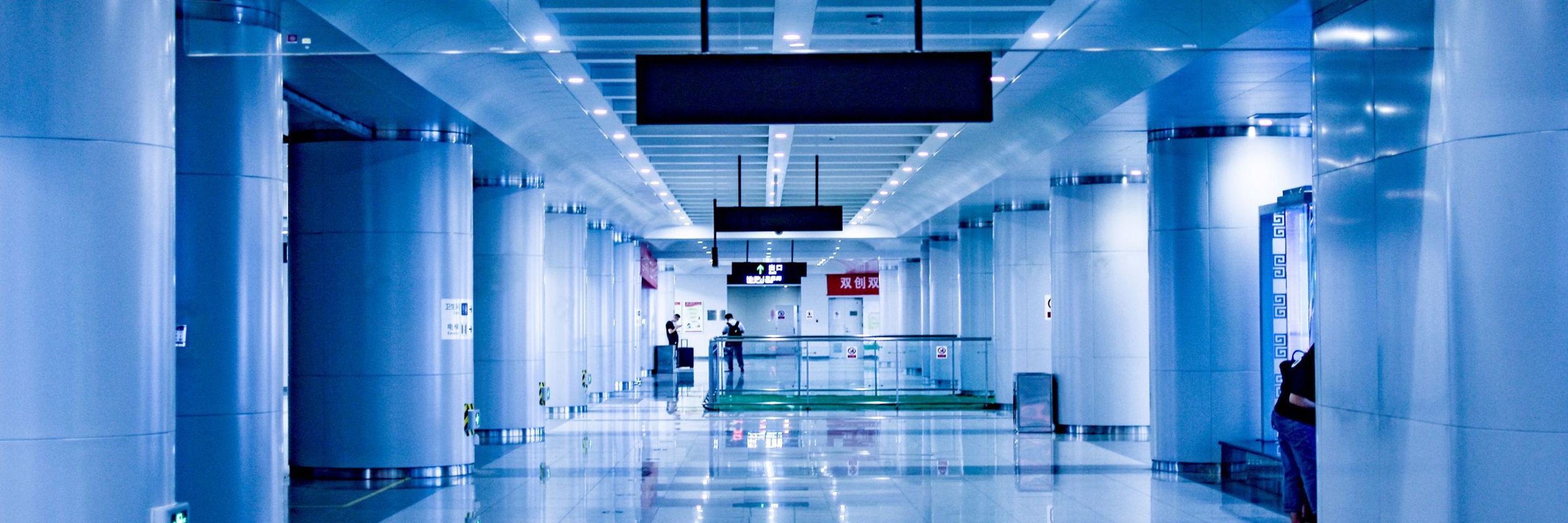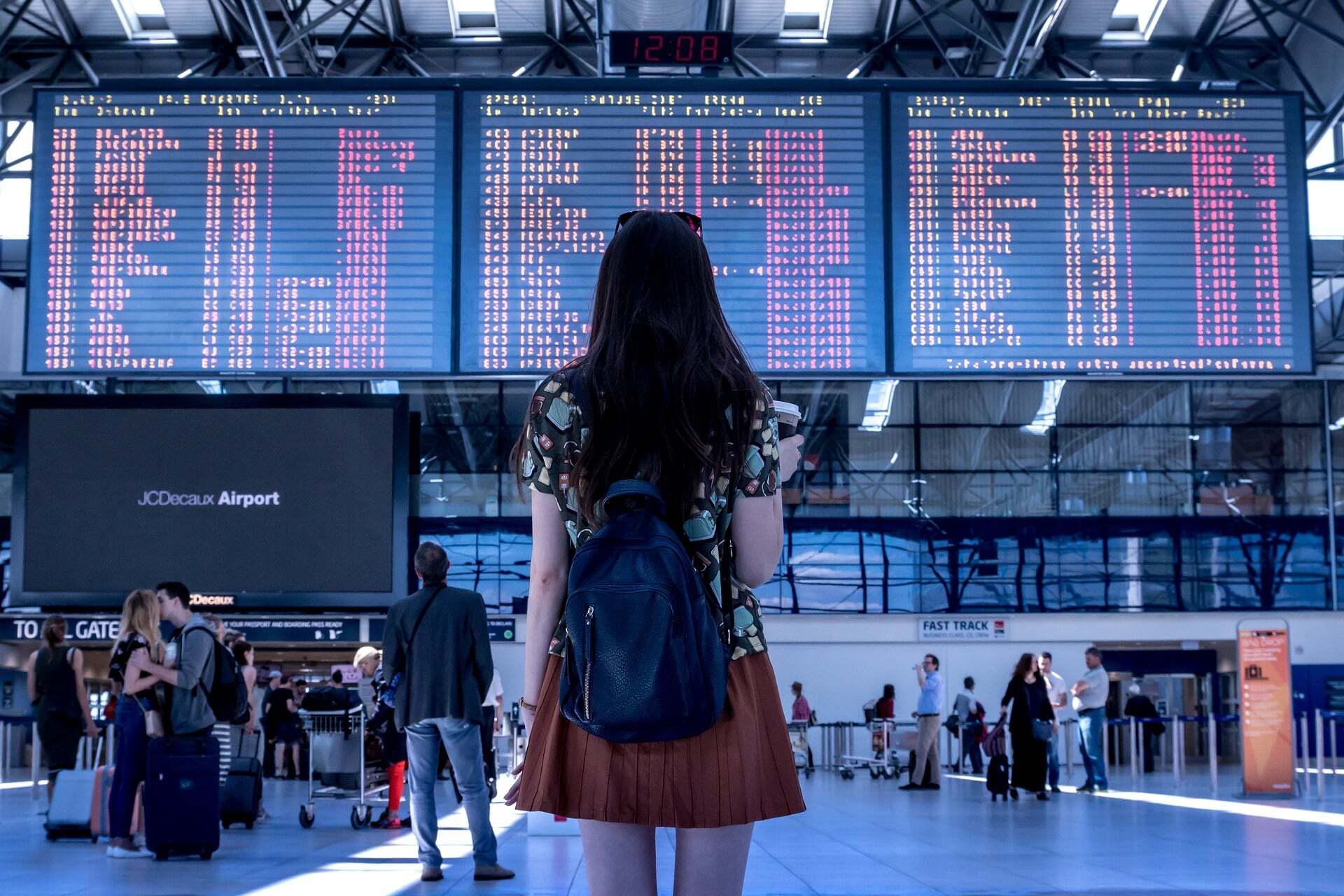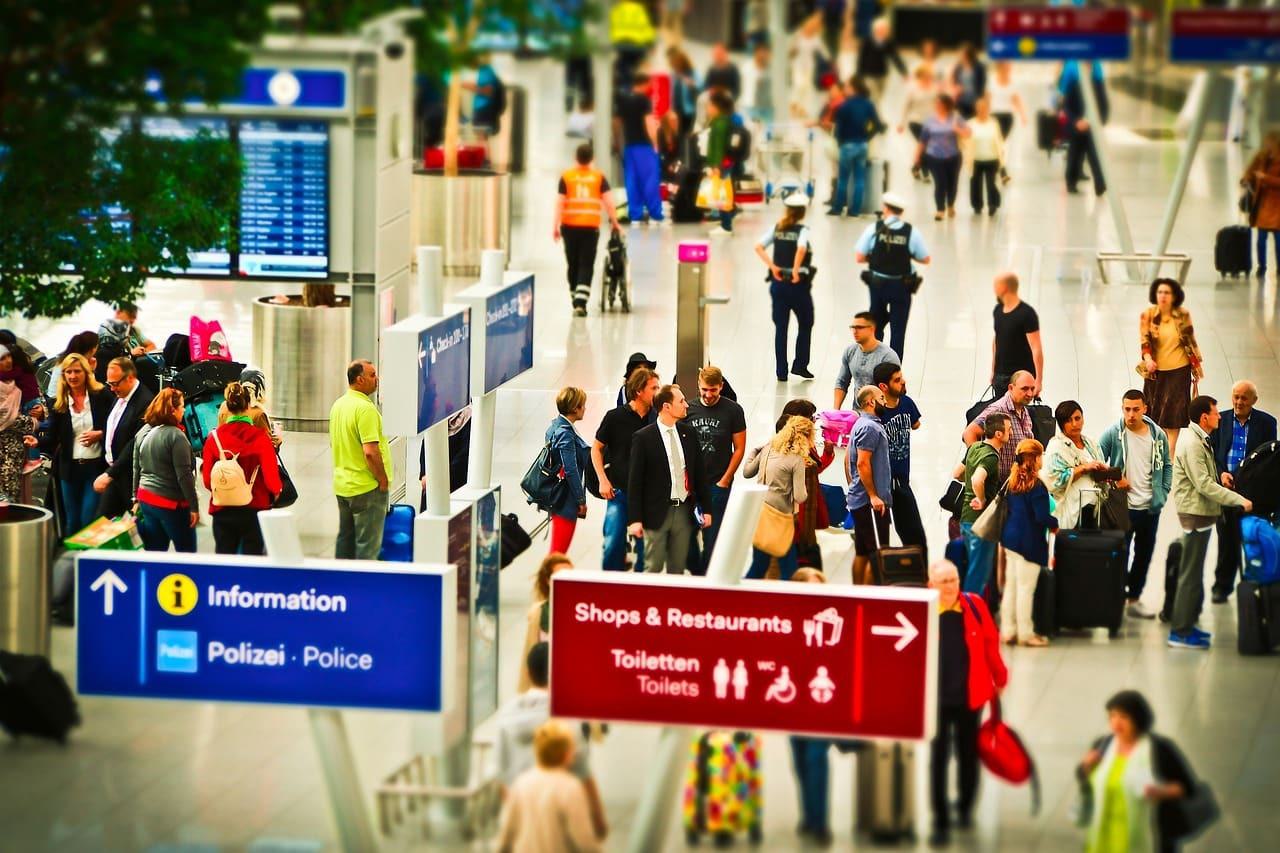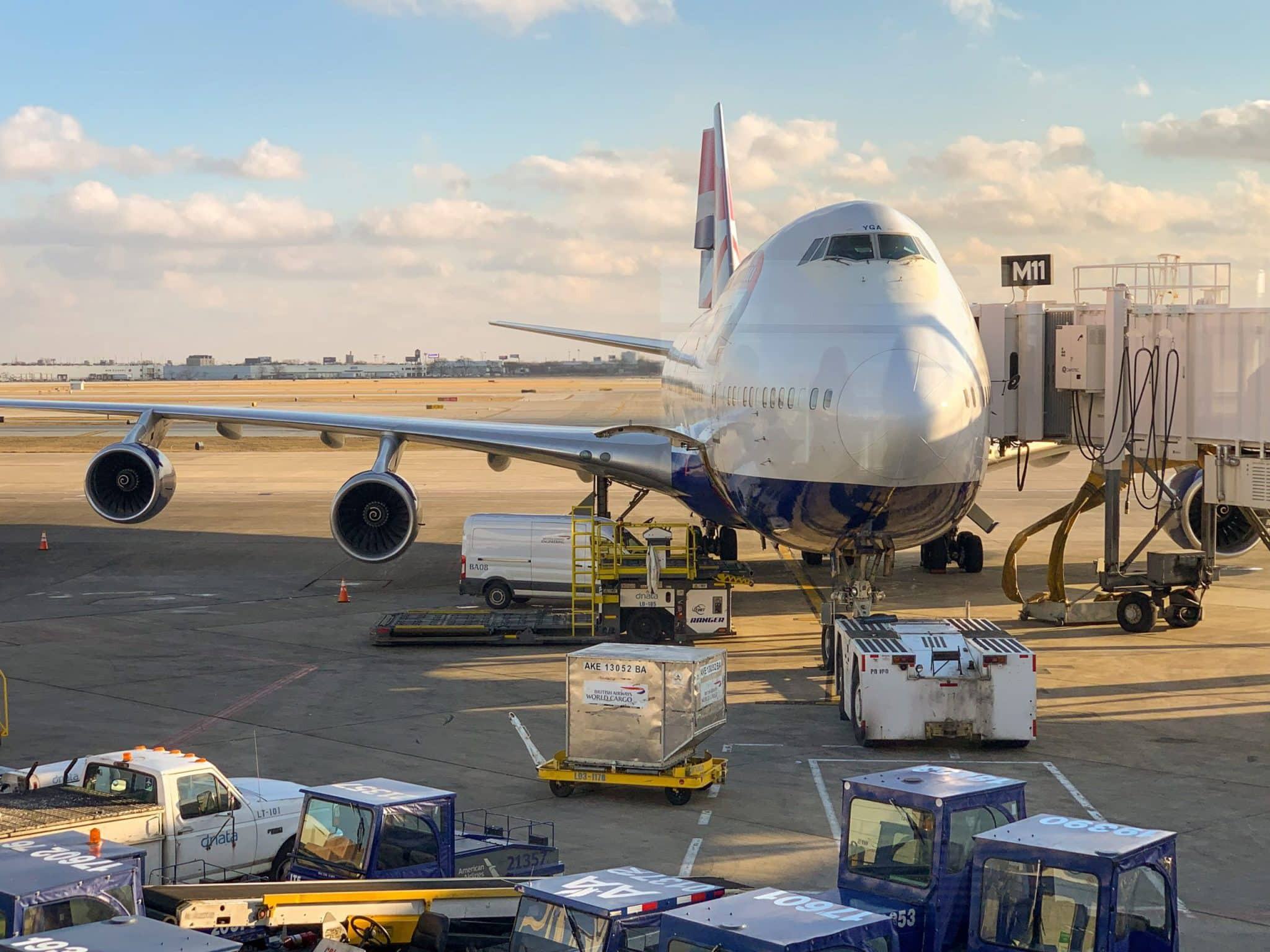
What does the future hold for business travel?
Corporate travel has been hard hit by the pandemic, with huge commercial implications for airlines, as well as event organisers, trade shows and the hospitality sector.
The business travel sector had never looked so rosy at the end of 2019.
The Global Business Travel Association estimated work travel spending was rude with health, with a spend of US$1.4 trillion capping out its best year ever. There were more than 400 million business trips in the United States alone.
The focus at the start of 2020 was continuing to develop an ever more personalised service and the bleisure trend – adding vacation time to business trips – was gaining more traction, particularly among the younger business cohort.
In 2019, a car rental company reported that as many as 90 per cent of millennial business travellers were now adding leisure components to their trips.
There was no reason to think the industry wouldn’t power on. But COVID-19 wasn’t in anyone’s reckoning.
Work travel spending was slashed more than 50 per cent to $694 billion during 2020, far worse than the drop that followed the terror attacks of September 11, 2001, or the Great Recession in 2008.
Red numbers flowed from the International Air Transport Association (IATA). The most recent data shows air travel, measured in revenue passenger kilometres, has declined 67.2 per cent in March 2021, compared to March 2019.
That data includes domestic travel – which has all but returned to pre-Covid levels in places such as China and Russia – but when international travel is isolated, the devastation that the pandemic has wreaked is laid bare – a fall of 87.8 per cent.
Passenger traffic between countries is down 94.8 per cent among Asia Pacific airlines compared with March 2019, while European carriers are faring little better with an 88.3 per cent decline.
The loss of spending on business airfares, hotels, restaurants and entertainment amounts to more than $2 trillion globally in 2020. Business travellers are just 12 per cent percent of airline passengers, but they account for as much as 75 per cent of profits.
But while airlines are keen to get moving again, confidence from employees and employers to step on a plane may be slower to follow. Can business continue to be done without face-to-face meetings?
Confidence the key ingredient
International travel is starting to inch forward as vaccines are rolled out.
The US has formed working groups with Canada, Mexico, the European Union and the United Kingdom to restart travel, while authorities have eased travel recommendations for more than 110 countries.
The EU itself is establishing vaccine passports for travel within the bloc, while the UK has a green list of quarantine-free travel destinations, and Australia, Singapore and South Korea are establishing travel bubbles.
“There are individuals that are still not really interested in travelling and people here want to stay in this bubble for as long as they can.”
Rob McKie
Travel options becoming available is the first step but there remains a reluctance by employers to allow business flights, as well as among individuals to board a plane.
This hesitancy is evident in Australia, which shut down international travel in March except by special exemption. The nation remains comparatively unscathed by the pandemic, with about 30,000 cases among the 171 million worldwide, and 910 deaths.
Rob McKie, Partner with Baker Tilly network firm Pitcher Partners in Melbourne, says Australia’s bubble has worked well to keep the virus under control and the appetite for the risks associated with travel has not returned.
“I think business leaders would like to travel, or their businesses would like them to travel for certain things, but it comes back to the individual’s appetite, that’s where the challenge is,” he says.
“There are individuals that are still not really interested in travelling and people here want to stay in this bubble for as long as they can.”
Domestic travel is permitted in Australia but state governments have reacted aggressively to small outbreaks from hotel quarantine by locking down metropolitan areas for days at a time.
“The leap from public transport to getting on a plane, it seems for a lot of people that there is still quite a fair way to go.”
– Karen Frenkiel
In these cases, people risk of finding themselves in isolation for 14 days and unable to fly home if they have visited high-risk exposure sites – a risk that has to be worn by business.
“I’ve talked to others across the network in places like London and the Netherlands, and those people are moving around a lot more than we are,” Mr McKie says.
“It’s accepted there that they are not going into a sudden lockdown like we might.”
Karen Frenkiel, Principal Consultant at Pitcher Partners, says the requirement of an individual role will be a key driver to the resumption of travel but, at present, the risks outweigh the benefits for many people.
“People are still in the sort of headspace where they don’t even want to take public transport,” she says.
“So the leap from public transport to getting on a plane, it seems for a lot of people that there is still quite a fair way to go.”
Why doing business remotely can’t last
Many businesses have survived without travel, with millions of people taking up video conferencing platforms such as Zoom to stay in touch with clients and get deals done.
While acknowledging that businesses did what needed to be done, Shaun Wong, Partner at Baker Tilly Thailand, believes that relying solely on remote meetings and digital collaboration won’t last.
“I’m dealing with a lot of clients and Thailand was not very digital in terms of communication, there was Line and WhatsApp but things like Zoom and Microsoft Teams wasn’t really a thing at all and we were forced into that,” he says.
“Our teams and our clients, whatever industry they are in, are mostly working from home and from an Asia Pacific standpoint it doesn’t work too well.
“You lose a lot of that human touch, that human communication. The attention spans are a lot less in an interview or a meeting or a workshop, it just doesn’t work that well.”
“You lose a lot of that human touch, that human communication. The attention spans are a lot less in an interview or a meeting or a workshop, it just doesn’t work that well.
“It isn’t sustainable and a lot of businesses, in Singapore, Malaysia, Thailand in particular, are itching to just start moving around again.
“They are obviously considerate of what is happening with lockdowns but the appetite for most businesses is yes, we’re working through more of a hybrid model, but it can’t go on like this.
“COVID-19 is not going away, so we’ve got to find a way to get back to that human touch, where we can actually lead teams, where clients can go meet.
“Business people are all about the dollars, that is true, but the dollars also come from the relationships in our own networks.
“It’s absolutely key, and if we cannot connect, it is more challenging to have a relationship post an initial meeting, and the relationship isn’t as deep.”
Ms Frenkiel says the touch element cannot be replaced with digital platforms.
“It is very difficult to build relationships without being there in person,” she says.
“I’ve recently returned from maternity leave and came back into a new team where I didn’t know some of the people. With lockdowns and travel bans, I couldn’t even sit and have a cup of coffee with them and talk about what’s been going on.
“Then you start a new client engagement and we’re building relationships with 40 people in this business, and I haven’t met the CEO in person.
“As we’ve shown during the pandemic, it is possible to do great work and build relationships without being there in person, but it is a lot harder.”
The pandemic has delivered a realisation that not all the travel being done was necessary, says Mr McKie, but that doesn’t mean it will all dry up.
“There have been some things that we thought we had to travel for, and meet somebody face to face, that we’ve been able to achieve without being there in person,” he says.
“Some of that travel we used to do, people have said, ‘you know what, I don’t really need to do it either as frequently or for that situation.’
“But without a doubt, there’s other situations where you haven’t been able to fully replace it by having electronic conversations.”
Online conferences lack value
The conference and events industry did its best to push through in the absence of travel, investing in platforms for virtual gatherings to bring experts and networks together.
While associated industries such as hotels and airlines were unable to benefit – corporate travel accounts for about 70 percent of revenue for major hotel chains – the virtual conference thrived, with some online conference companies seeing growth of up to 1000 per cent.
“Whether we’re networking so that we can form new business relationships or whether we’re trying to service our clients and give them value for what they’re paying, it’s got to come back.”
– Shaun Wong
Among participants, people were able to attend more events than prior to the pandemic, increasing the reach of organisers, and virtual events have gathered overwhelming support, meaning they are likely to continue for the foreseeable future.
Mr Wong’s firm also moved client workshops and strategy sessions online over the last 12 months, but he started to recognise that the human element now missing was perhaps the most important component of the event.
“You don’t really get as much bang for your buck because the speakers usually draw from energy of the people,” he says.
“No matter whether you’re using breakout rooms, online whiteboards, there’s so many applications and tools, but it is just not the same. People have got to come back together.
“Whether we’re networking so that we can form new business relationships or whether we’re trying to service our clients and give them value for what they’re paying, it’s got to come back.”
Mr McKie recalled his experience of attending a global conference online that he had been too in person every year for the past decade
“They didn’t do it last year but this year they did it virtually, and I paid my money and it was the biggest waste of money that I’ve spent in the last 12 months,” he says.
“You got none of the personal interaction and networking that is the real value from that conference.
“When you’re away from your day-to-day environment, you’ll go and sit in sessions but when I was sitting at home, I had somebody chasing me with a work issue or a client.
“I’m not somewhere different where I’ve been disconnected from work, and work crept in a lot more than if I had been physically at a different location.
“I lost all the value that I would normally get out of those conferences.”









